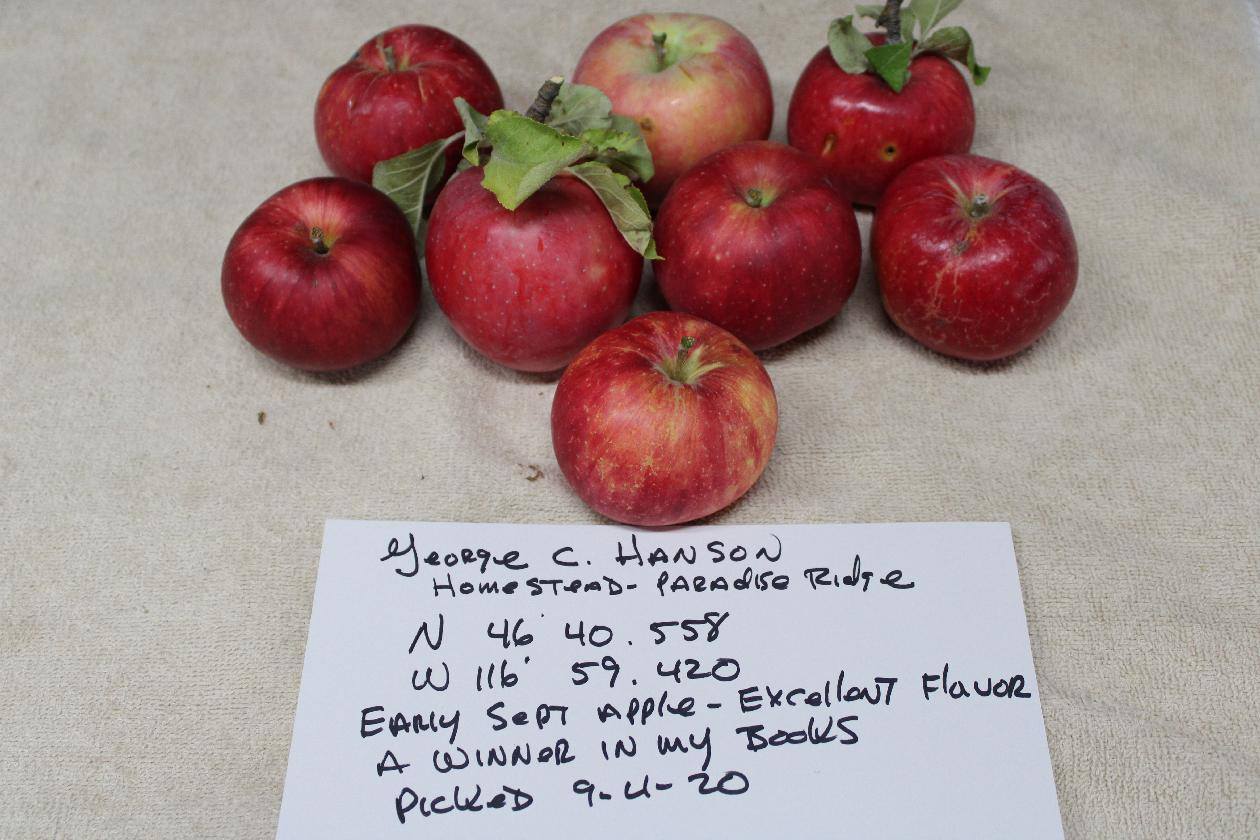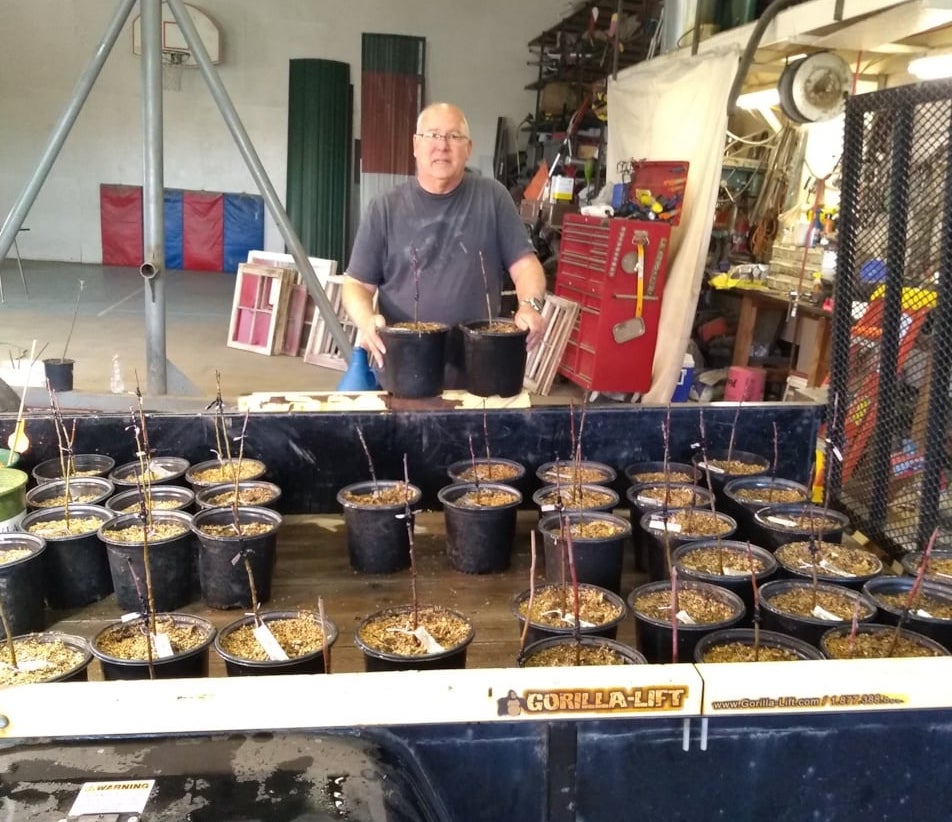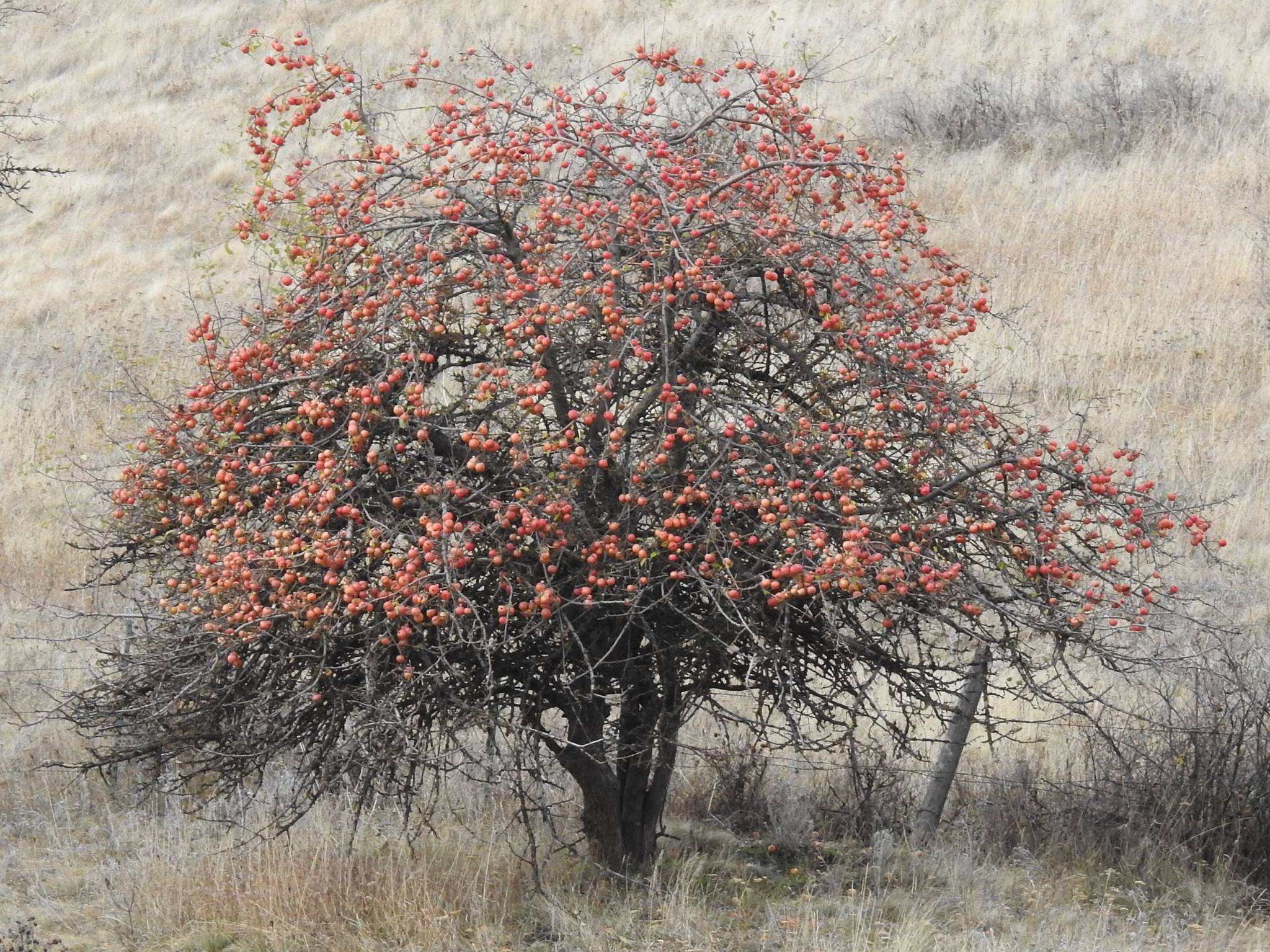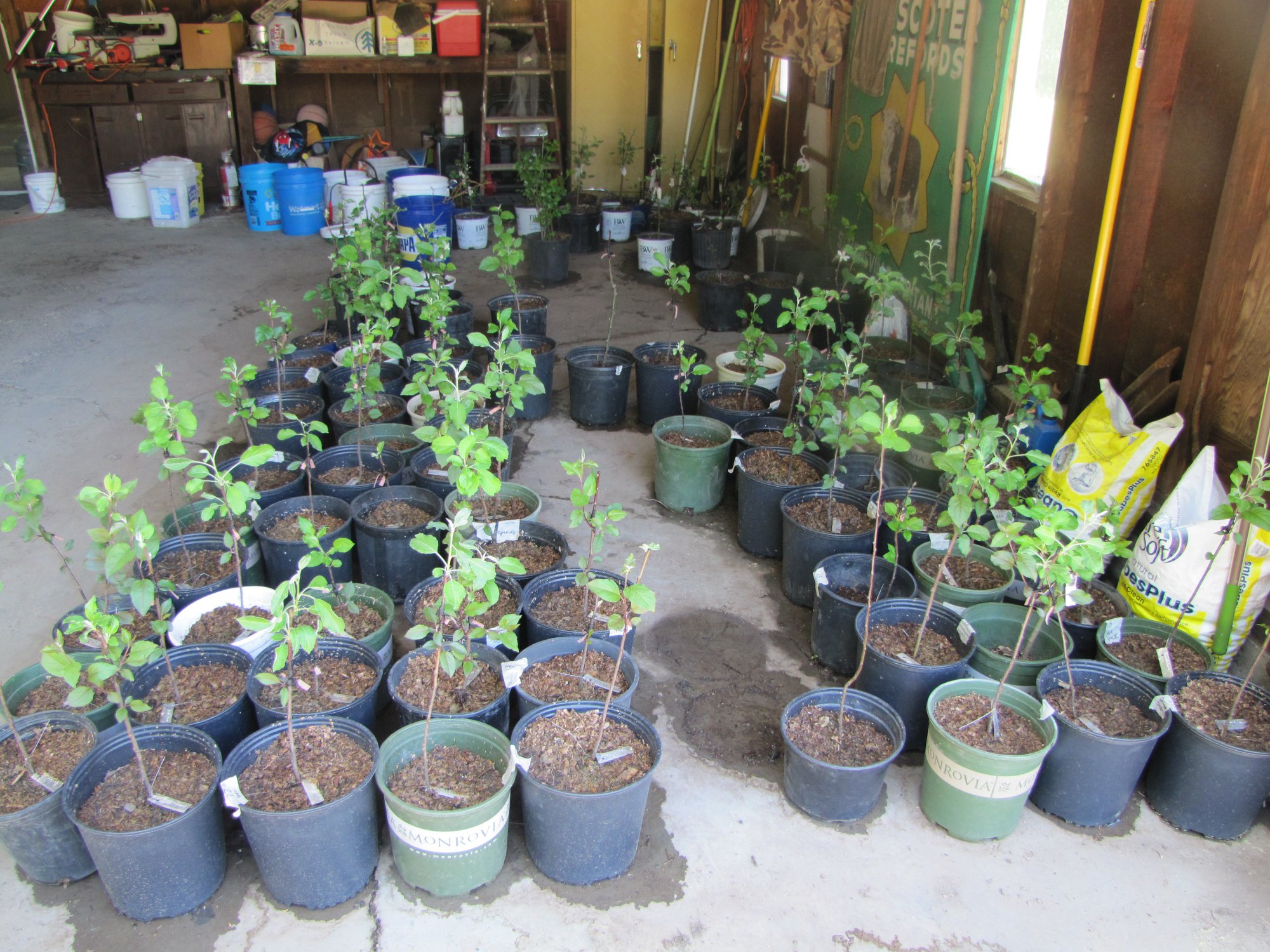After retirement, David Benscoter turned the sleuthing skills he honed as a FBI and IRS Criminal Division agent toward tracking down apple varieties thought to have become extinct. His passion has taken him to old apple orchards, homesteads and open lands across eastern Washington, northern Idaho and into Montana.
Partnering with the Whitman County Historical Society, Benscoter and the all-volunteer team at the Lost Apple Project seek to identify and map apple trees and orchards planted before 1920, working with landowners to encourage the preservation of these heritage apple trees.
Just eight apple varieties account for 97% of the commercial harvest in Washington State, with several other boutique varieties found only in specialty stores or fruit stands and “club” varieties grown by select growers. In 1900, noted banker and horticulturist Edwin Hanford grew 145 apple varieties in his Palouse orchard alone. Historical records provide a roadmap for apple hunters who, guided by a list of apple varieties known to have been grown in the area and now considered extinct or lost, collect samples that are sent to experts at the Temperate Orchard Conservancy in Oregon for testing.
In 2021, the crew logged more than 1,000 volunteer hours and gathered 250 samples they sent for identification. About half were identified as known (and sometimes rare) heritage varieties. But more than a dozen rare or never seen apples are entering a new phase of testing. Beginning this year, each apple suspected of being a lost variety will be DNA tested and the results compared with a DNA database at Washington State University.
“Of course,” Benscoter says, “lost apples don’t have their DNA in any database so when the results of a test come back as ‘unknown’ that is often just the news we want to hear!”
The Lost Apple Project is working to return these lost varieties to the region by making scions (grafting wood) available on their Facebook page, and selling newly grafted lost apple trees in Spokane and Pullman.
Want to be part of returning more diversity to the apple crops of the Inland Empire? Contact David Benscoter directly each summer for scions and trees. Or make a tax-deductible donation through the Whitman County Historical Society. Each apple DNA test costs $120, and the Lost Apple Project hopes to test as many as 50 trees this year, on top of their normal expenses. Sponsor a DNA test, and you never know, the test you pay for may lead to another lost apple recovery!
Contact the Lost Apple Project: dbens23@gmail.com or lostappleproject@gmail.com (509) 238-5150
Follow the project on Facebook
Read more and donate at the Whitman County Historical Society




